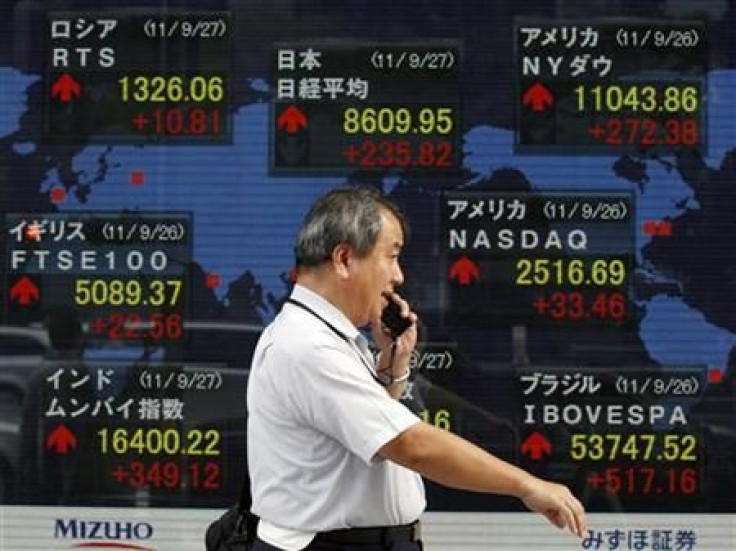Nikkei Falls Amid Spain?s Credit Rating Cut, Weak US Data

Japan's Nikkei 225 Stock Average fell Thursday amid report of cut in Spain's credit rating and disappointing data from the U.S.
The Nikkei declined 0.69 percent or 59.33 points to 8528.51 and the Topix index fell 0.48 percent or 3.47 points to 722.97. Meanwhile, consumer electronics companies, which were facing a declining trend in the last few sessions, were able to make some gains with stocks of Sharp Corp, Sony Corp and Panasonic Corp rising 1 percent, 1.2 percent and 1.5 percent respectively.
Investor sentiments were negative as Moody's Investors Service slashed the credit rating of Spain to Baa3 down from A3. The Spanish economy's continued weakness makes the government's weakening financial strength and its increased vulnerability to a sudden stop in funding a much more serious concern than would be the case if there was a reasonable expectation of vigorous economic growth within the next few years, Moody's said in a statement.
Investors were also concerned since a report released Wednesday by the European Union said that industrial production in the euro area declined 0.8 percent in April compared to the previous month. The worry is that this is an indication that the euro zone's narrow escape from recession in the first quarter is unlikely to last very long.
The confidence of the market players was also dragged down following weak economic data from the U.S. as the retail sales fell 0.2 percent in May. Investors worry that the stalling in the U.S. retail sales growth in May suggests that the economic recovery has come to a complete halt.
Investors feel that the intensifying crisis in the euro zone, coupled with signs that the U.S. economic recovery, is faltering has increased the need for the Fed to announce more monetary stimulus urgently. Fed Chairman Ben Bernanke underlined last week that the Fed remained prepared to take action as needed to protect the U.S. financial system in the event that financial stresses escalated.
© Copyright IBTimes 2024. All rights reserved.











